Opinions
Trump, the Curious Christian Choice
There is no low road to greatness

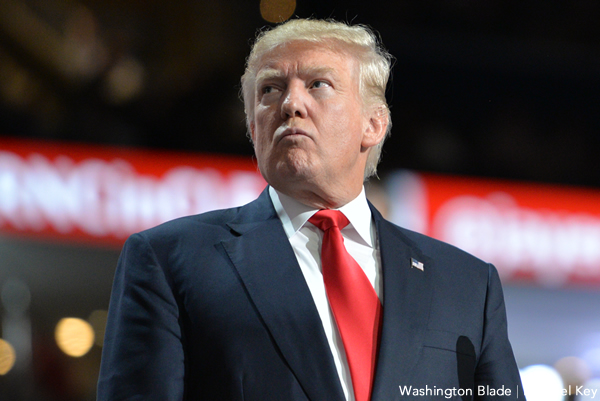
Republican presidential candidate Donald Trump (Washington Blade photo by Michael Key)
It is instructive that leading voices of the Christian right support someone for president who believes in nothing more than himself. To paraphrase H.L. Mencken, imagine a virtuous man and you have imagined everything Donald Trump is not.
The religious conservatives, however, are interested in power more than virtue. To be sure, trusting a pathological person like Trump is risky. But Trump promises to appoint anti-abortion Supreme Court justices and repeal the so-called Johnson Amendment, which prohibits tax-exempt organizations from endorsing political candidates.
America’s religious pluralism has always included people who use their freedom to infringe the freedom of their neighbors. Every zealot with a Bible seems to feel deputized by the Almighty to climb the nearest platform and issue damning decrees. Our shield against them is the Constitution, as long as we don’t allow fundamentalists to rewrite or reinterpret it.
Nothing is more pernicious than people asserting the authority of Holy Writ. This is not just because it is obnoxious and presumptuous, but because it has such bloody consequences. Just last week, the handiwork of American evangelicals like Scott Lively was on display in Uganda, where police brutally raided a Uganda Pride event, a fashion show dedicated to the Orlando massacre victims. One of the young people present was so terrified that he jumped out a window and suffered a fractured spine.
Like Lively, the Christianist zealots deny any role in fomenting such violence. But hate speech inspires hateful acts. Multiple cases have occurred recently in which Muslims were removed from commercial airline flights simply because their presence made others uncomfortable. If you want more of that, vote for Trump. If not, vote against the party that has put itself in thrall to the most ignorant, fearful, and intolerant element in this country. Vote against it up and down the ballot.
Some among us do not care about these threats. Their privilege will shield them even if the Constitution does not. The rest of us must stand together and take our civic duty seriously. If our complacency leads to a Republican win, its fruits could include loss of reproductive choice, recriminalization of gay sex, abolition of marriage equality, and ramped-up persecution of religious minorities.
Any discussion of religious bullies is incomplete without due recognition of our own countless religious leaders, from Bishop Gene Robinson to Imam Daayiee Abdullah to Rev. Irene Monroe to my late friend Barrett Brick, past executive director of the World Congress of GLBT Jews. Barrett’s graceful, erudite, and politically charged derashot (homilies) at DC’s Congregation Bet Mishpachah were matched by his evangelism for full integration of the faith community in the LGBT movement. That integration was crucial to winning marriage equality in DC and Maryland, where affirming ministers effectively countered adversarial colleagues.
One thing that amazed me during the marriage battle in DC was the stout opposition by many of our ministerial opponents even to allowing women ministers. When I saw how stuck in the past they were, I was more confident that we would win; but we did not slacken our efforts. Those who think we should stay in separate silos ignore how our opponents link us, and how our own diversity links us. If we work together, the GOP will have to change if it is ever again to win a national election. If we fail, massive resistance will have to be organized against the repression that will follow.
The virtues needed are not the monopoly of any faith. Humility, charity, justice, courage, integrity and love brought our Ugandan brothers and sisters together last week, and have sustained them since the raid. If bellowing and bluster are the keys to victory, Trump will win. But there is no low road to greatness.
Fifty-one years ago, John Lewis put off attending to his own fractured skull as he saw to his wounded comrades who had followed him over the Edmund Pettus Bridge. The seed of true greatness lies in the simple virtues that drove those patriots in the 1960s and the pioneers in Uganda last week. Chief among them is the virtue observed in the early Christians, however misshapen it has become in some of their latter-day heirs: “See how they love one another.”
Richard J. Rosendall is a writer and activist. He can be reached at [email protected].
Copyright © 2016 by Richard J. Rosendall. All rights reserved.
Commentary
BookMen DC: Still going strong at 25
Celebrating the longest-running LGBTQ literary group in the area

On May 11, 1999, what was originally known as the Potomac Gay Men’s Book Group convened for its first meeting. A lot has changed over the ensuing quarter-century, starting with our name. But our identity remains true to the description on our blog: “an informal group of men who are interested in gay literature (both fiction and non-fiction).”
Our founder, Bill Malone, worked at the Whitman-Walker Clinic and started the group using donations of remainder books from a wholesaler in New York. Soon after that, members decided to get their own books, and began purchasing them through Lambda Rising, which offered a discount for such orders until it closed in 2010. The group later renamed itself BoysnBooks, and then became BookMen DC in 2007, which is also when we started our blog.
Following Bill’s tenure, Tom Wischer, Greg Farber and Tim Walton (who set up our blog) have served as our facilitators. I succeeded Tim in that role in 2009, and am grateful to him and all my predecessors for laying such a solid foundation for our group.
Twenty-five years after our founding, we are the longest-running LGBTQ literary group in the DMV. So far, we have discussed nearly 400 books, ranging from classics like Plato’s Symposium to graphic novels, gay history and memoirs, and novels by James Baldwin, Michael Cunningham, E.M. Forster and Edmund White—to name just a few of the many authors and genres we’ve explored.
Currently, we have more than 120 names on our mailing list, of whom about a quarter attend meetings at least occasionally. (Average attendance at our meetings is about 10.) Our members variously consider themselves gay, queer, bisexual, or transgender, and those varying perspectives enhance our discussions. I would be remiss if I didn’t acknowledge that, like many LGBTQ organizations, we are not nearly as diverse as I wish we were. Although we do have young members and people of color within our ranks, we are predominantly white and middle-aged or older. We have tried various forms of outreach to further diversify our membership, and will keep working on that.
How has BookMen DC not just survived, but thrived, when so many other book clubs and LGBTQ groups have foundered? I would identify several factors.
First and foremost, we are welcoming. We have no minimum attendance requirements and charge no dues. And we expressly encourage members to join us at meetings even if they haven’t finished the selection we’re discussing.
We are also collaborative. Each fall, members nominate titles for the next year’s reading list; I then compile those suggestions into a list for members to weigh in on, and the results of that vote determine what we will read.
Finally, we are flexible and adaptable. Over the years, we have met in locations all over the District. Currently, we meet on the first Wednesday of each month at the Cleveland Park Library (3310 Connecticut Ave. NW) from 6:30-7:30 p.m. to discuss entire books; afterward, those interested go to dinner at a neighborhood restaurant.
When the pandemic struck four years ago, we took a break for a couple of months before moving operations online. (Thank God for Zoom!) Even after the venues where we’d been meeting reopened, we have continued to meet virtually on the third Wednesday of each month, from 7-8 p.m. During those Zoom sessions, we discuss sections of anthologies of poetry and short stories, as well as short standalone works (e.g., plays and novellas).
If you enjoy LGBTQ literature and would like to try us out, visit our blog: https://bookmendc.blogspot.com/ and click the link to email me. We’d love to meet you!
Steven Alan Honley, a semi-retired musician, editor, and writer, has been a member of BookMen DC since 2000 and its facilitator since 2009.
Opinions
Rosenstein: Vote for Angela Alsobrooks and April McClain-Delaney
Two strong, accomplished women for Maryland
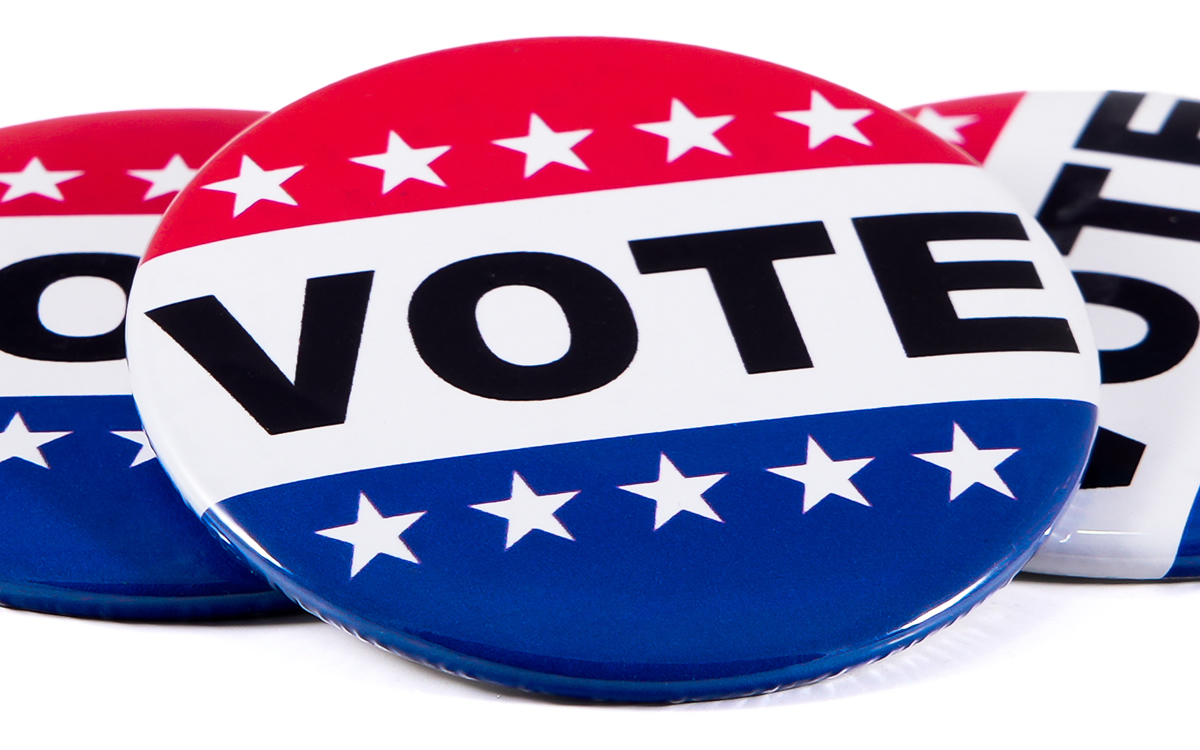
I am endorsing two strong accomplished women for Maryland. The first is Angela Alsobrooks, for United States Senate. Second is April McClain-Delaney for Congress in Maryland’s 6th District. Both women are superbly qualified, and will fight hard for, and be a credit to, the people of Maryland.
Angela Alsobrooks is county executive of Prince George’s County. She was born and raised in Maryland. She is a graduate of Duke University, and the University of Maryland, School of Law. She was the first full-time Assistant State’s Attorney to handle domestic violence cases in Prince George’s County. She made history as the youngest, and first woman, to be elected Prince George’s County State’s Attorney where she stood up for families, taking on some of Maryland’s worst criminals, while treating victims and the accused with dignity and respect. Under her tenure, violent crime dropped by 50 percent.
Alsobrooks has said, “This year we know the rights of women to control their own bodies and healthcare, is at the top of the list of concerns for so many Marylanders, and decent people across the country, both men and women.” Because of this Maryland must elect a strong woman to ensure we win the fight on this issue. There are many reasons to support Alsobrooks. One is if we look at the United States Senate, what is clearly missing, is an African-American woman. That is a disgrace. Marylanders have the ability to make that right by voting for Angela Alsobrooks.
But there are other reasons to vote for Angela. She understands how federal policy impacts states and counties, directly impacting her constituents, because she has dealt with the issues that arise from the bills Congress passes. Angela is a pragmatic progressive, and will work across the aisle to get things done. Nothing prepares you more for negotiating with Republicans in Congress, than negotiating with a county council and community activists, and she has done both successfully for many years. She will continue to fight for LGBTQ equality having named the first LGBTQ liaison in PG County. She supports legislation to fight climate change, and supports student loan forgiveness. Maryland leaders know Alsobrooks is the right candidate. She has been endorsed by Gov. Wes Moore, Lt. Gov. Aruna Miller, Sen. Chris Van Hollen and former Sen. Barbara Mikulski, Congressmen Jaimie Raskin, Steny Hoyer and Glenn Ivey; and an overwhelming number of local legislators and leaders in PG County. They all know how good she is, and how much she will do for Maryland, and the nation. I urge a vote for Angela Alsobrooks in the Democratic Senate primary.
I also join a hero of mine, former Speaker Nancy Pelosi, Congressmen Steny Hoyer and Dutch Ruppersberger, along with a host of Maryland legislators and office holders, who have endorsed April McClain-Delaney. She has more than 30 years’ experience in communications law, regulatory affairs, and advocacy, across a broad spectrum of government, private sector, and non-profit engagements. She has served as the Washington director and a board member of Common-Sense Media, a leading non-profit dedicated to how media impacts kids health and wellbeing. Her policy and advocacy efforts have spanned digital citizenship, bridging the digital divide, and tech equity issues, privacy matters, spectrum, and internet governance. She has served as assistant general counsel and regulatory affairs director at Orion Satellite where she oversaw domestic and international regulatory efforts in approximately 20 countries, and served as one the founding board members of the International Satellite Association.
In addition to her professional endeavors, she has served on numerous boards and councils. These include the Meridian Women’s Leadership Council; Georgetown Institute for Women, Peace and Security; Georgetown Law Center (past chair); Northwestern University Board of Trustees; the International Center for Research on Women; Innocents at Risk; and the Sun Valley Community School. She is a graduate of Northwestern University and has her JD from Georgetown Law Center. Delaney is the best candidate to win the 6th District for Democrats. Delaney understands rural Maryland having grown up on a farm in Iowa. She understands government today, serving as the Deputy Assistant Secretary for Communications and Information, U.S. Department of Commerce, in the Biden administration.
When it comes to the issue of protecting a woman’s right to control her own body and healthcare, no one will match April in her vigilance. She is a mother fighting for the rights for her four daughters. She is a strong supporter of LGBTQ rights, and will support policies to fight climate change, support debt relief for students, and will work to protect our national security. She understands what it means to work across the aisle without giving up any of her principles. She is the kind of person we need in Congress. I urge a vote for April McClain-Delaney in Maryland’s 6th Congressional District, Democratic primary.
Peter Rosenstein is a longtime LGBTQ rights and Democratic Party activist. He writes regularly for the Blade.
Opinions
Unique financial planning challenges for trans community
Overcoming roadblocks in journey to living an authentic life
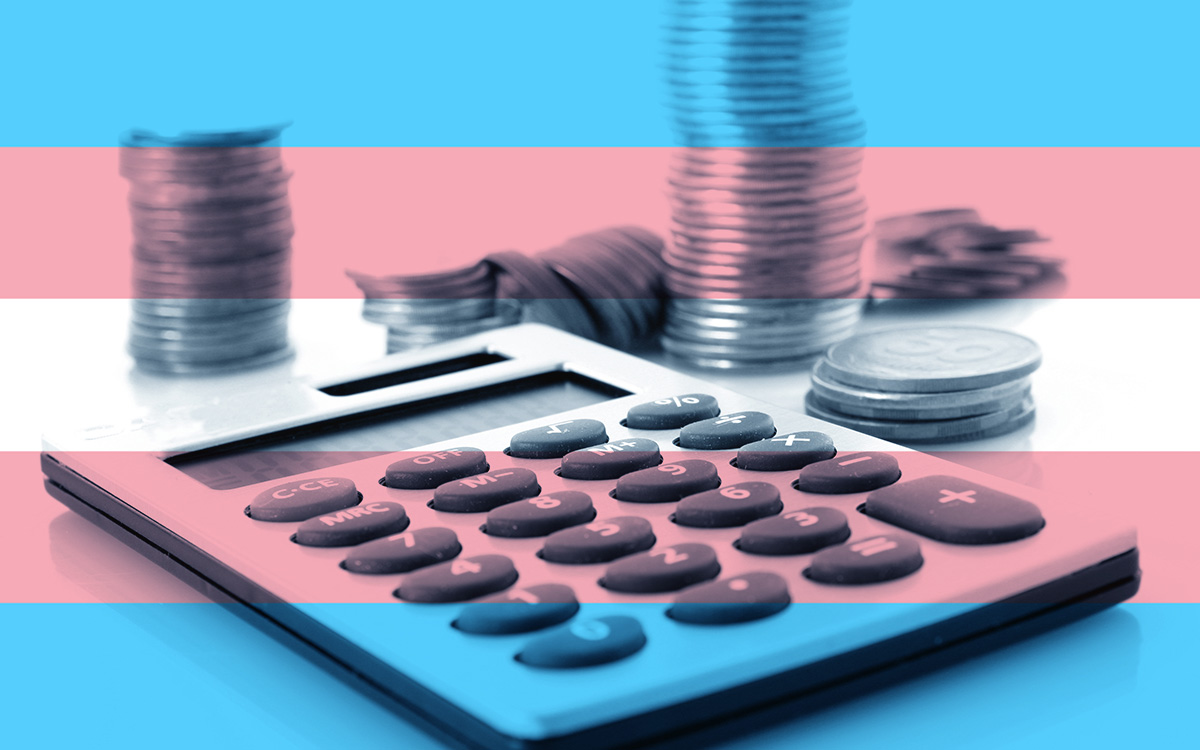
Approximately 2.6 million Americans identify as transgender, according to the U.S. Census Bureau Household Pulse Survey in 2023. This community faces many financial, legal, and estate planning challenges, resulting in higher rates of financial instability compared to the general population. However, these challenges are not generally understood or even discussed.
At JPMorgan Chase, we’re dedicated to providing awareness and education to help all communities — including members of the LGBTQ+ community — reach their financial goals. Our team at J.P. Morgan Wealth Management recently published a new white paper to offer actionable tips for transgender adults to help them overcome some of the specific obstacles they face with planning.
Here are some key takeaways:
Inaccurate identity documents create a foundational problem
Hundreds of thousands of transgender people in the U.S. do not have a single piece of identification that correctly identifies their gender or chosen name. Many people, including those in the broader LGBTQ+ population, have never thought about what their lives would be like if they lacked accurate identity documents.
Having accurate identity documents is essential for so many aspects of everyday life – applying for school or a job, finding a place to live, exercising the right to vote and boarding a plane. Presenting inaccurate identification in these situations can subject transgender individuals to unfair discrimination and harassment. But correcting name and gender markers on identity documents can be complicated, expensive, time-consuming, and in some cases, impossible.
The U.S. State Department has adopted one of the most simple and progressive policies for correcting gender markers in the world. Since June 2021, medical certification is not required to change the gender marker in one’s passport. Transgender people should consider updating their U.S. Passport book or card immediately and use that document as primary identification. Passport books and cards are valid for 10 years, even if policies change during that time.
Credit issues are common for trans community
Transgender individuals who are able to successfully obtain new identity documents still frequently face credit issues. Unlike changes to one’s last name after a marriage or divorce, informing banks or other creditors of a change to one’s first name on accounts does not automatically cause credit reporting agencies to update that person’s credit file. The credit reporting system can often be problematic for transgender people after a name change, with many reporting that credit files are never updated or that their credit scores decline.
This can create a cascading effect in numerous areas of one’s financial life, and it goes beyond borrowing. Credit files are frequently checked in employment decisions, pricing insurance, establishing utility and phone service and applying to rent a home.
Until policies change, transgender individuals should directly contact each creditor and credit reporting agency and follow each organization’s specific procedures and documentation requests. And they should carefully monitor that the changes are actually made and do not result in a credit score change.
Emergency and end-of-life documents should be carefully reviewed
Transgender people often have special health care needs and face unique forms of disparate treatment in accessing care, and cannot speak for themselves in these circumstances. End-of-life planning is often difficult to think about, but it’s especially critical that this community works with their attorneys and trusted advisors to create customized emergency and end-of-life legal documents.
The people named in these documents who could become decision-makers – typically trusted friends or supportive family members – should be empowered to direct health care providers to meet the patient’s wishes and preserve their chosen name and gender identity, as well as service providers, such as funeral home employees, to honor the deceased’s wishes about their appearance during memorial services.
The laws for these documents are complicated, and they vary depending on the state or territory. If possible, these documents should be prepared by experienced attorneys who routinely work with members of the LGBTQ+ community.
The bottom line
Transgender individuals in the United States face unique financial, legal and estate planning challenges that create roadblocks in their journey to living an authentic life. Careful planning can help mitigate some, but not all, of these obstacles.
JPMorgan Chase & Co., its affiliates, and employees do not provide tax, legal or accounting advice. You should consult your own tax, legal and accounting advisors before engaging in any financial transaction. J.P. Morgan Wealth Management is a business of JPMorgan Chase & Co., which offers investment products and services through J.P. Morgan Securities LLC (JPMS), a registered broker-dealer and investment adviser, member FINRA and SIPC.
Joseph Hahn is executive director of Wealth Planning & Advice at J.P. Morgan Wealth Management.
-
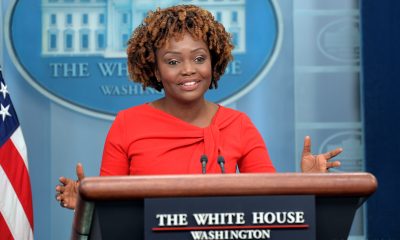
 The White House2 days ago
The White House2 days agoEXCLUSIVE: White House Press Secretary Karine Jean-Pierre on speaking out and showing up
-

 Middle East2 days ago
Middle East2 days agoTel Aviv authorities cancel Pride parade
-
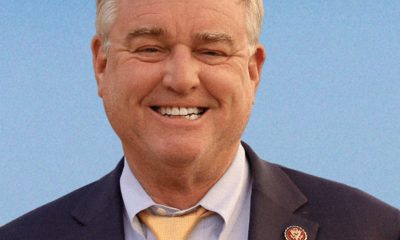
 Maryland4 days ago
Maryland4 days agoTrone discusses transgender niece
-

 The White House3 days ago
The White House3 days agoJane Rigby awarded Presidential Medal of Freedom












